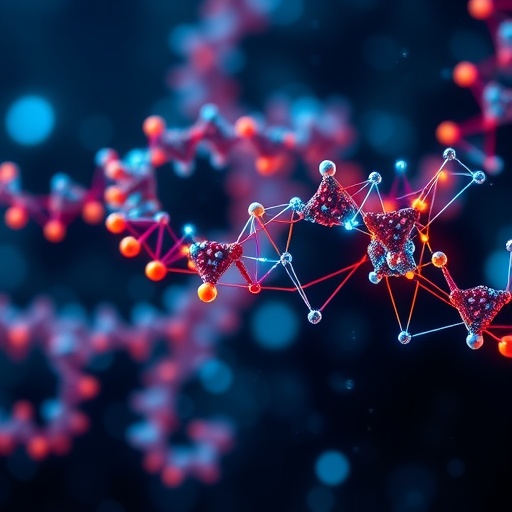In the rapidly evolving field of machine learning (ML), the selection and composition of training datasets are paramount for model performance, particularly in complex domains such as immunotherapy. A recent study conducted by a team of researchers highlights the profound impact that the definitions of negative classes can have on the ability of models to generalize and discover biological rules in the context of antibody and antigen binding interactions. The research investigates how different formulations of negative datasets can influence not just the accuracy of predictions but also the interpretability and biological relevance of the discovered rules.
The researchers embarked on this study with a clear premise: in the domain of supervised learning, datasets must contain both positive and negative examples for the model to effectively learn a representative mapping of the underlying biological processes. However, the crux of their findings is that the choice of negative samples can drastically alter the performance of the machine learning models. By utilizing synthetic structure-based binding data, the authors tested several configurations of negative datasets, observing the nuanced shifts in model outcomes that emerged from these choices.
One of the striking revelations of this study was that although higher out-of-distribution performance could be achieved when the negative dataset included samples that bore a closer resemblance to the positive dataset, this often came at the cost of in-distribution performance. This phenomenon raises compelling questions about the trade-offs inherent in dataset composition and the complexities involved in crafting datasets that not only train models to predict outcomes accurately but also ensure that those models are robust across various scenarios. The implications of these findings are particularly relevant for the field of immunotherapeutic design, where precision and reliability are crucial.
Furthermore, the researchers delved into the deeper implications of their results by exploring how the use of ground-truth information can modify the binding rules identified in the positive data, depending on the negative dataset utilized. This aspect of the research underscores the importance of a well-structured training regime, where the interplay between positive and negative examples can foster the emergence of more biologically relevant insights. The model’s ability to discern subtle yet significant patterns hinges on the judicious selection of negative examples that complement and contrast with the positive cases.
The validation of these findings using experimental data offers a robust foundation for the study’s conclusions. By demonstrating that simulated observations held true in real-world applications, the researchers bolster the argument for a nuanced understanding of dataset composition’s significance in machine learning applications related to biological data. This validation enhances the credibility of their work, paving the way for further inquiry into optimizing dataset definitions for machine learning in the biomedicine sector.
The implications of this research extend beyond a mere academic exercise; they resonate within the broader scientific community, highlighting the critical need for a conscious and informed approach to dataset construction. For researchers aiming to deploy machine learning in biological contexts, particularly in predicting interactions like antibody-antigen binding, the lessons learned from this study could inform best practices and strategies for dataset design that maximize predictive performance and biological interpretability simultaneously.
Moreover, in a world increasingly driven by data, understanding the intrinsic mechanisms that govern machine learning outcomes can be an essential tool for researchers. As the demand for personalized medicine grows, the findings from this study provide a roadmap for more effective approaches to understanding immunotherapeutic interactions through machine learning, aligning closely with the goals of achieving precision in medical treatments.
In conclusion, the exploration of dataset composition reveals a significant dimension of machine learning that must be addressed if researchers are to harness its full potential in immunotherapy design and beyond. The interplay between training data composition and model generalization is a critical area for future research, particularly in elucidating the mechanisms that underlie antibody-binding predictions. With the advancement of synthetic data generation techniques and improved understanding of biological systems, the potential for machine learning to revolutionize immunotherapeutics is immense.
As scientists continue to explore this intersection of data science and biology, ongoing refinement of methodologies, including a clearer understanding of negative sampling strategies, will be vital. These insights not only contribute to the development of more sophisticated predictive models but also resonate deeply with the overarching goal of aligning artificial intelligence with the intricacies of biological systems. In an era where technology and healthcare intersect more than ever, such advances could herald a new chapter in the effectiveness of immunotherapies and other medical innovations.
In summary, this body of work emphasizes the crucial role that training data composition plays in the development of machine learning models within the biological realm. As researchers strive to decode the complexities of immune interactions at a molecular level, their findings serve as a valuable contribution to the ongoing dialogue surrounding the application of machine learning in enhancing our understanding and treatment of diseases.
Subject of Research: Machine Learning Model Performance and Dataset Composition in Immunotherapy
Article Title: Training data composition determines machine learning generalization and biological rule discovery.
Article References:
Ursu, E., Minnegalieva, A., Rawat, P. et al. Training data composition determines machine learning generalization and biological rule discovery. Nat Mach Intell 7, 1206–1219 (2025). https://doi.org/10.1038/s42256-025-01089-5
Image Credits: AI Generated
DOI: https://doi.org/10.1038/s42256-025-01089-5
Keywords: machine learning, immunotherapy, dataset composition, antibody-antigen binding, model generalization, biological rule discovery




